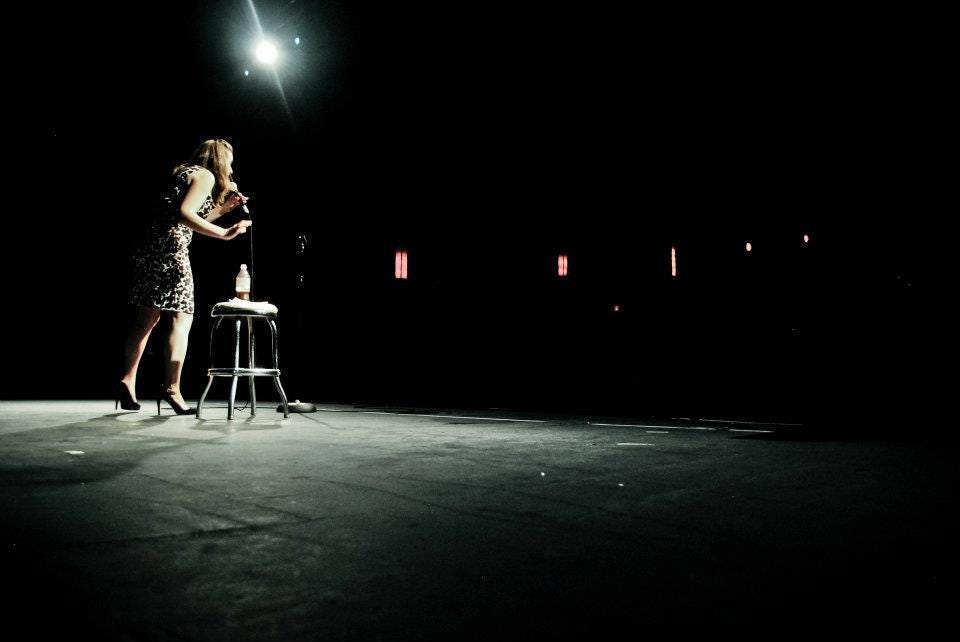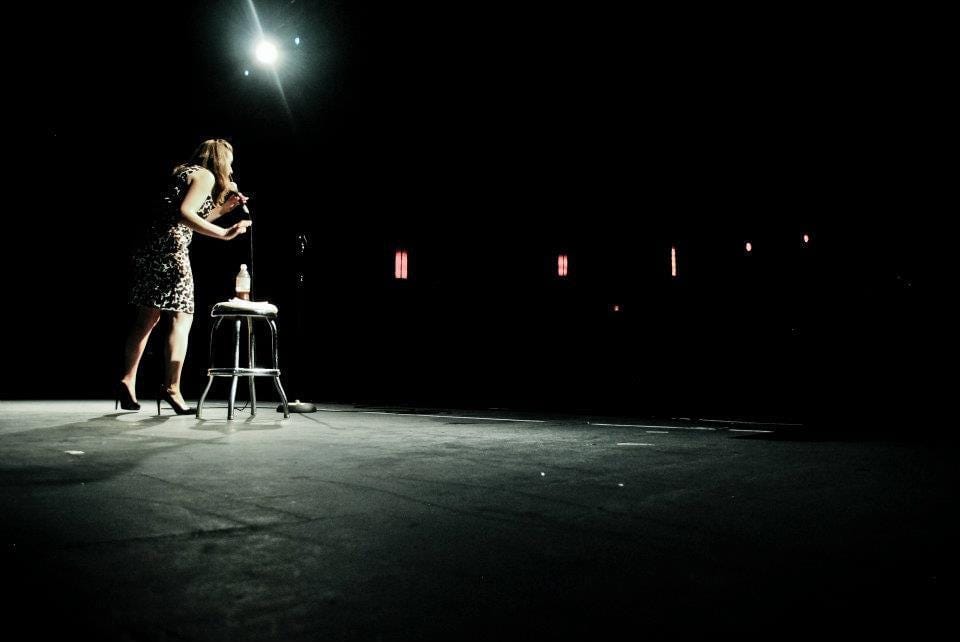
My stutter is not a gimmick or a creative choice; it’s who I am and how I talk, and it doesn’t impede my ability to make audiences laugh. But sometimes I run into resistance from the audience. One time, at the beginning of my act, a woman in the audience stood up and screamed, “I can’t handle this!” then stormed out of the club. The room got uncomfortably silent, and I felt completely frozen. But the ball was in my court, so I responded, “If I could get through middle school with a stutter, I’m sure she could get through the next five minutes.” The tension in the room broke into laughter, and the performance ended up being pretty great. That is the beauty of comedy: you can take any awkward or painful experience and turn it into triumph.
I have what many perceive as the most difficult barrier to the stage — but the only real barrier to comedy is not being funny.
Becoming a comedian was a dramatic transition in my life. Growing up with people teasing me for the way I talked made me averse to speaking, and the thought of standing in front of a crowd was unthinkable. But I was always in love with comedy. When other middle-school girls were swooning over New Kids on the Block, I was swooning for the comics in Rodney Dangerfield’s Young Comedians Special. I spent my entire life dreaming about being a comedian, but I thought my stutter would disqualify me.
I was 36 when I finally gathered the courage to pick up a microphone. Since then, I’ve learned important lessons: the way something can be funny in your head and fall flat on stage; the passion it takes to drive 100 miles for a show with only a free drink for compensation; a roomful of drunken strangers who can become your best friends. As a result, I feel better equipped to face the world as a person who stutters. Nothing teaches you to confront self-image and other people’s perceptions quite like the stage. During these seven years, I’ve thought about what it means to be different. I have what many perceive as the most difficult barrier to the stage — but the only real barrier to comedy is not being funny. Comedians come in all varieties: loud and quiet, old and young, of every race and gender. I might not be the comic archetype you see in film and television, but I am true to my own image.
I still encounter prejudice. One time, I auditioned for the owner of a comedy club. After delivering my best five minutes of dick jokes, I asked if she had any shows I might be a good fit for. She replied, “You know what? Just keep going to open mics, keep getting onstage, and I’m sure one day you’ll have enough self-esteem to stop stuttering!” Dear owner: if self-esteem issues were the cause of stuttering, every kid in high school would be doing it. It takes incredible self-esteem to even get onstage.
I didn’t overcome my stutter; I simply allowed it to exist.
Ultimately, we are always going to be judged according to someone else’s assumptions, and the only thing we have control of is our response. I am reminded of this every time I have to produce a comeback for some bozo’s drunken heckle. As comedians, we face the prejudices of the crowd every time we go onstage, but we can redirect them through the prism of our joke logic until they serve our narrative. It’s like discovering how to surf—the judgment of the audience is two seconds from crashing down on your head, but then you learn to maneuver yourself so that it carries you for a victory ride instead of pummeling you into the dirt. Once I figured out how to do this onstage, I realized that I could do it anywhere. Anyone can, if they’re willing to face the wave and get knocked down a few hundred times during the learning process.
Stories about disabilities usually end with a moral, an inspirational tale of overcoming, something warm and fuzzy for the non-disabled reader. That is not how I view my story. I didn’t overcome my stutter; I simply allowed it to exist. People can think what they want about me, my comedy and, yes, my stuttering. Good or bad, their views give me something to hang my jokes on — jokes that represent me, the way I want to be represented as a person with disabilities. One of the greatest honors of my stand-up career was hearing someone say that they identify with my jokes and feel less alone because someone else spoke their truth. If other people can’t handle that truth, let them walk out. I am going to keep speaking.
Nina G is a comedian, children’s book author and professional speaker. For more about her, go to www.NinaGcomedian.com.
Nina G will be appearing at the Jewish Contemporary Museum in San Francisco along with other comedians with disabilities for Humor and the Disability Experience: A Stand-up Comedy Show on April 23. You can learn more at https://www.thecjm.org/programs/117.







